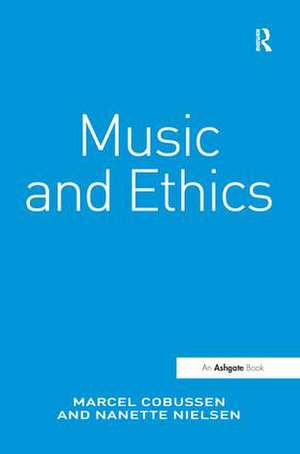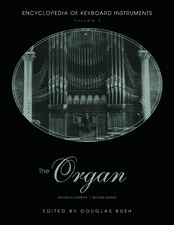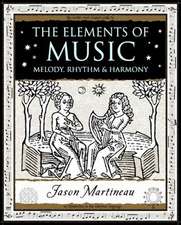Music and Ethics
Autor Marcel Cobussen, Nanette Nielsenen Limba Engleză Paperback – 3 ian 2017
| Toate formatele și edițiile | Preț | Express |
|---|---|---|
| Paperback (1) | 485.32 lei 6-8 săpt. | |
| Taylor & Francis – 3 ian 2017 | 485.32 lei 6-8 săpt. | |
| Hardback (1) | 1054.58 lei 6-8 săpt. | |
| Taylor & Francis – 18 oct 2012 | 1054.58 lei 6-8 săpt. |
Preț: 485.32 lei
Nou
Puncte Express: 728
Preț estimativ în valută:
92.86€ • 97.23$ • 77.03£
92.86€ • 97.23$ • 77.03£
Carte tipărită la comandă
Livrare economică 10-24 aprilie
Preluare comenzi: 021 569.72.76
Specificații
ISBN-13: 9781138279018
ISBN-10: 1138279013
Pagini: 192
Ilustrații: Illustrations, black and white
Dimensiuni: 156 x 234 x 15 mm
Greutate: 0.36 kg
Ediția:1
Editura: Taylor & Francis
Colecția Routledge
Locul publicării:Oxford, United Kingdom
ISBN-10: 1138279013
Pagini: 192
Ilustrații: Illustrations, black and white
Dimensiuni: 156 x 234 x 15 mm
Greutate: 0.36 kg
Ediția:1
Editura: Taylor & Francis
Colecția Routledge
Locul publicării:Oxford, United Kingdom
Notă biografică
Marcel Cobussen teaches Music Philosophy and Sonic Studies at Leiden University, The Netherlands, and the Orpheus Institute in Ghent, Belgium. He is author of several books, including Thresholds: Rethinking Spirituality Through Music (Ashgate, 2008). He is editor-in-chief of the open access online Journal of Sonic Studies. Nanette Nielsen is Associate Professor at the University of Oslo. She works on music and philosophy, especially ethics and aesthetics in twentieth-century music, and on opera and music criticism in the Weimar republic. Her publications include the article 'Ernst Krenek's "problem of freedom" in Jonny spielt auf' (Twentieth-Century Music, 2013) - for which she won the 2014 Jerome Roche Prize - and a co-edited special Opera Quarterly issue on ’Opera and Philosophy’ (with Tomas McAuley, 2014).
Recenzii
'... the authors do such an excellent job of explaining their views that even readers unfamiliar with all the subject matter should have no trouble following the discussions of Levinas, Heidegger, or Kivy, for example. A fine contribution to debates about the ethical dimensions of music... Highly recommended. Lower-level undergraduates and above.' Choice ’What can moral philosophy contribute to the study of music? And how can thinking about music enrich the ways in which we regard ethics? Approaching their subject with extensive knowledge of current debates within both philosophy and musicology, Cobussen and Nielsen invite readers to consider the reasons why the phenomenon of music matters so profoundly in human societies.’ Susan McClary, Case Western Reserve University, USA 'This book provides lines of inquiry that could (and should) be used to orient future discussions, and as such is an important contribution... a thoughtful exploration into the ways that music contributes to ethics and is an important addition to the growing discourse on music and ethics.' New Sound '... a narrowly focused book in music and philosophy that still engages art and life in many ways. While it requires some understanding of philosophy, the musical aspects could easily find an audience among improvisers, new media studies scholars, and anyone interested in the way music affects and effects our daily lives.' Music Reference Services Quarterly
Cuprins
Introduction, Nanette Nielsen, Marcel Cobussen; Chapter 1 Listening, Marcel Cobussen; Chapter 2 Discourse, Nanette Nielsen; Chapter 3 Interaction, Marcel Cobussen; Chapter 4 Affect, Marcel Cobussen; Chapter 5 Voice, Nanette Nielsen; Chapter 6 Engagement, Marcel Cobussen, Nanette Nielsen;
Descriere
It seems self-evident that music plays more than just an aesthetic role in contemporary society. It is thus surprising that the subject of ethics is often neglected in discussions about music. Music and Ethics examines different ways in which music can contribute to theoretical discussions about ethics as well as concrete moral behaviour. Rather than offer a general musico-ethical theory, the book explores ethics as a practical concept, and demonstrates through concrete examples that the relation between music and ethics has never been absent.










![Write Songs from Scratch [With CD (Audio)]](https://i1.books-express.ro/bt/9780851623511/write-songs-from-scratch-with-cd-audio.jpg)




